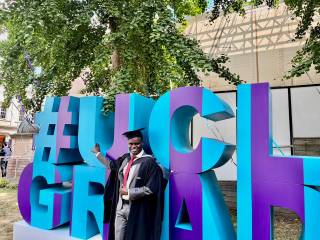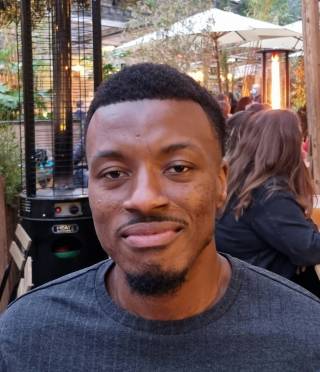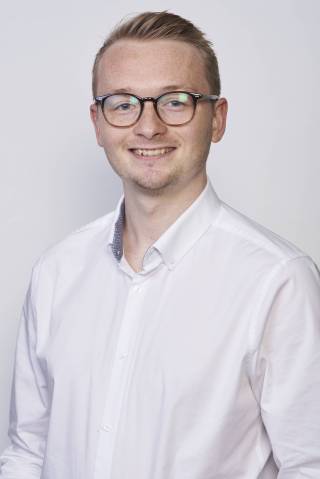Hear from some of the students who have completed their MSc course in Health Economics and Decision Science

The program constitutes of five core and three optional modules, and allowed the flexibility to tailor module choice to my interests. Econometrics for Health and Modelling for Decision Sciences courses, in particular, were fascinating subjects: application and relevance to the current fight against COVID-19 made them extremely captivating.
The transition to online learning in the spring of 2020, as a result of the lock down, was made effortlessly thanks to clear instructions and communication from module leads. While online learning is very different, I found benefits in the flexibility it offered and the time I saved from commuting.
The support from UCL and the IGH staff has been outstanding throughout the year; every time I required help, I was met with great enthusiasm and encouragement. For instance, I am currently working on a side project in conjunction with the NHS and the support/advice I am receiving is invaluable.
Health economics is particularly relevant in the current climate and the skills obtained from the course are in high demand. With the experience and expertise at UCL, I recommend this course to anyone who is interested in studying this subject and making a difference.
Walter Morris, 2019-2020 cohort
The MSc HEDS is a relatively new program at UCL, and I am very lucky to be one of its first students (2017/2018). During my one-year study with this wonderful programme, I was given the opportunity to choose between health economics stream and decision science stream, and take as many interesting courses as possible such as Bayesian Methods in Economic Evaluations, Medical Statistics and Modelling for Decision Science.
By taking these well-organised courses, I gained knowledge about key concepts used in economic evaluations, and was able to build up a strong foundation for my current PhD research at UCL. A good combination of lectures and seminars facilitated independent thinking and group learning, and could make you learn new things and rethink everything we used to be familiar with. The dissertation also enabled us to delve into topics the students want to focus on with the guidance from senior researchers at UCL.
Last but not least, being in London means you can meet people with diverse background but same interests and maintain an active social life. Thanks to all the staff and students of MSc HEDS, I did have a wonderful overseas experience full of challenge and fun.
Xiaoxiao Ling, 2017-2018 cohort
The MSc Health Economics and Decision Science at UCL provides a great overview of the tools required to be successful in Health Economics and Outcomes Research. I chose to study this programme as I wanted to apply my Economics background and analytical skills to an area that contributes to improved outcomes for society.
I particularly enjoyed learning the statistical and modelling skills for calculating cost-effectiveness of new interventions, through the modules "Economic Evaluation of Health Care" and "Bayesian Methods for Health Economics".
Through UCL, I was able to organise an internship with Parexel working on survival analysis of real trial data, which I used for my dissertation. This was a fantastic opportunity to consolidate the skills learnt on my course, and has led to a full-time job role at Parexel.
The Institute for Global Health at UCL is a great department to be a part of. It consists of such a large number of students and academics covering a wide range of health research areas, providing so many opportunities to connect with and learn from other people. The support and admin staff were fantastic in ensuring my time at UCL was enjoyable and the programme ran smoothly.
UCL adapted very well to online teaching with little time to prepare. The systems are already in place to provide the same quality of teaching online as is possible in-person. I have also been impressed at how much support UCL provides to students, enabling everyone to really get the most out of their degree.
Georgia Harris, 2019-2020 cohort
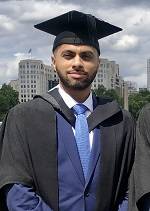
Economic Evaluation in Health Care was an interesting, intensive three-week online module where various skills were developed and honed. Having strict deadlines for numerous pieces of submissions in this module helped with time-management and prioritising. Other skills learnt were peer-reviewing journal articles, costings, as well as data analysis on Microsoft Excel.
Modelling for Decision Science was an particularly interesting module where I was introduced to MATLAB. I thoroughly enjoyed modelling infectious diseases on the software and learning more about the various modelling techniques and infections.
This MSc at UCL gave me the opportunity to be a speaker at the International Health Economics Association conference in Basel 2019, where I presented my dissertation research project. My dissertation research project was about assessing the inequalities in health care seeking costs for diabetes in rural Bangladesh, which is currently in the pipeline for journal publication. This MSc has opened doors for me in the world of research and analytics, as well as finance and business since graduating. The direct and transferrable skills picked up from this MSc are invaluable and in high demand from prospective employers.
This multidisciplinary degree is the best you can get at postgraduate level. MSc HEDS at UCL is a degree that combines Economics, Statistics, Data Analytics, and Epidemiology under one umbrella. My knowledge was thoroughly advanced and I constantly studied and picked up numerous skills. I learnt various data analytic skills on software such as R, Stata, and MATLAB during my study of MSc HEDS. Alongside the incredibly knowledgeable and supportive lecturers, I also met many supportive, and friendly peers who were driven and like-minded in this course.
Studying MSc HEDs under the supervision of world-renowned lecturers and at a prestigious institution in the heart of London is the greatest opportunity. The department provides immense support and endless opportunities, and you meet various individuals from all over the world. A remarkable amount of skills is cultivated within the duration of the course, and this equips you for further study and the working world. I would highly recommend studying MSc HEDS at UCL to prospective students.
Rohit Syed-Hasan, 2017-2018 cohort
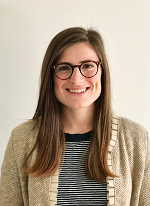
I really enjoyed the modelling of infectious disease module and focussed my dissertation in this area. This module is extremely topical given the importance of modelling the spread of COVID-19 and I have found it interesting to have a basic understanding of how they may be modelling the disease.
I now work as a research associate at Evidera, a scientific health research consultancy, within the Patient Centered Research team. Economic Evaluation gave me basic knowledge about cost-effectiveness analysis which is relevant to our work.
Within my team we conduct patient preference research, using stated preference methods such as a Discrete Choice Experiment (DCE). Our goal is to find out more about what matters to patients when choosing a treatment and what trade-offs they are willing to make between different treatment features, such as efficacy, risks and convenience. This type of research is based on economic theory and the Microeconomics for Health module was a great basis for learning more about this form of research.
Overall, this course provided me with an insight into the types of jobs available in this industry and provided me with the skills necessary for working in this field.
Caitlin Thomas, 2017-2018 cohort
 Close
Close


